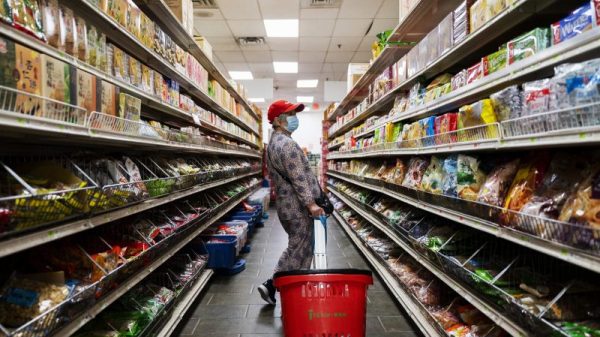Vergelegen Wine Estate in South Africa’s Western Cape is using an unconventional method to keep its 130 hectares of vineyards both virus and pesticide free. Pairing technology and nature, the 324-year-old wine estate is using drones to drop predatory wasps that control pests without the use of insecticides.
The project is being carried out by SkyBugs, a partnership between Cape Town-based FieldBUGS, which supplies the predatory insects, and agritech company Aerobotics, which works with a network of drone pilots to disperse the bugs accurately.
Predatory wasps are increasingly being used for pest control in South Africa, and other parts of the world. SkyBugs’ drones fly roughly 30 meters above the vineyard, carrying a “motor-driven mechanism equipped with a cartridge,” says Matt Davis, head of mapping operations at Aerobotics. “As the motor rotates, a plastic film unfolds, releasing wasp pupae (the stage of an insect between larva and adult).”
Each flight covers up to 20 hectares and 500 Anagyrus wasps — which are indigenous to South Africa — are released per hector, before the drone lands so the team can insert a fresh battery and insect cartridge. Data is also collected via an app.
The target of the tiny, 3-milimeter-long Anagyrus is the troublesome mealybug, which can spread the debilitating vine disease known as leafroll virus, which is detrimental to the overall grape harvest.
For farmers, spotting the virus and controlling the mealybugs can be costly, time consuming and labor-intensive. SkyBugs says aerial drone application is proving to be faster and much more cost effective than spraying insecticides, which can be detrimental to the environment and to insects, such as the cross-pollinating bees that are integral to the ecosystem.
After the pupae are dropped, adult wasps emerge and are attracted by the mealybugs’ pheromones. The wasps lay eggs inside the mealybugs, consuming them from the inside out — known as parasitizing — leaving their host hollow and dead.
“The leafroll virus has virtually been eradicated in the farm,” says Rudolf Kriel, viticulturalist at Vergelegen.
Cultivating the predator’s playground
For over 20 years the Vergelegen team has worked closely with virologist and leafroll virus expert Gerhard Pietersen. Formerly a professor at the University of Pretoria, and at Stellenbosch University, Pietersen founded a biotech company called Patho Solutions to further tackle agricultural diseases.
“Grapevine leafroll associated virus-3 (GLRaV-3) or ‘Type three’ is an extremely serious virus of grapevines,” Pietersen explains. “The virus replicates itself in the plant’s vascular system, preventing the nutrients from flowing. The virus’s weakness is that its only host in nature is the grapevine. Not all plant viruses have such limits to the hosts that they can infect.”
“The result of infestation is that the berries on the bunch ripen unevenly, failing to achieve the desired color and take a long time to build up sugar which is essential in wine making,” he adds.
Once a vine is infected, signs of the virus can be spotted with the naked eye. Starved of much-needed nutrition, the leaves turn red in autumn and reveal green veins, followed by a slight downward curling of the leaves.
“Any attempts to take out an infected vine and replace it with a new one can prove ineffective if pieces of the infected vine are left behind in the soil,” says Pietersen.
He adds that the best way to control this virus is “to remove all infected vines in a vineyard along with controlling the mealybug vector. This is best achieved over a whole estate, but this is not economically viable as the input costs to start over are very high.”
Judy Bryant
Using wasps to eliminate the virus could be a promising solution. Since they are native to the region, there should be no “unintended consequences” of releasing increased numbers to the vineyards, he says. “The wasps only feed on mealybugs and then die.”
Other farmers in the region, growing fruit such as apples, pears and citrus fruit, have been using drones to drop other predatory insects in their orchards for pest control.
A valuable industry
South Africa is among the 10 largest wine producers worldwide, harvesting an estimated 1.2 million metric tons of grapes last season, and employs nearly 270,000 people across the value chain, according to Vinpro, a non-profit that represents close to 2,600 South African wine producers, cellars and industry stakeholders.
Vinpro describes the leafroll virus as detrimental to the wine industry, which also had to contend with a decreased harvest in 2022-2023 due to weather conditions,
Rudolf Kriel, viticulturalist at Vergelegen, explains that a healthy vineyard could remain productive for well over 20 years, but if a vine is infected by leafroll Type-3 virus, the plant will last half that time and bear very little to no yield in its final years.
Vergelegen has a program of different measures to control the virus and Kriel says its records showed less than 0.05% of leafroll virus infestation in red grape varieties, and less than 0.3% in the white varieties. “The leafroll virus has virtually been eradicated in the farm,” he says.
Pietersen says Vergelegen is “regarded as the model estate worldwide, on control of leafroll disease in an environmentally sustainable way.”
Controlling the virus could do more than just improve grape yields — it could make for better wine. In a blind taste test study done by the University of Stellenbosch, using grapes harvested from both infected and healthy vines, “the freshness seems to come through in the wine made from healthy vines,” Pietersen says.







































